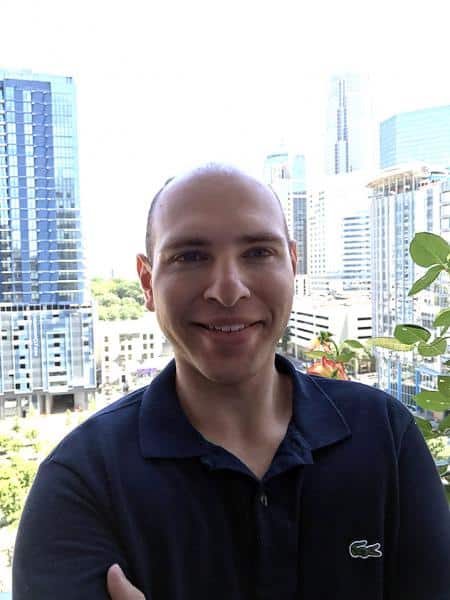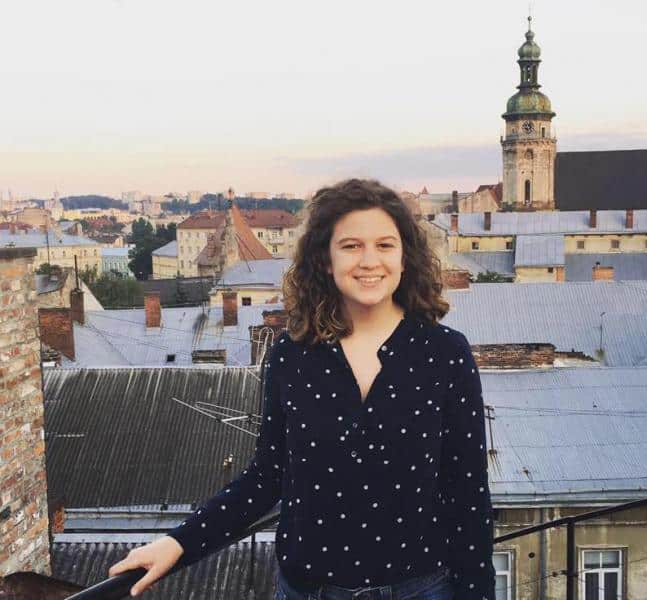Friday, May 05, 2017
2017 Cohen-Tucker Dissertation Research Fellows Announced
ASEEES is delighted to announce the 2017 Stephen F. Cohen-Robert C. Tucker Dissertation Research Fellowship recipients. The Cohen–Tucker Dissertation Research Fellowship (CTDRF) Program for Russian Historical Studies supports the next generation of US scholars to conduct their doctoral dissertation research in Russia. The CTDRF Program is sponsored by the KAT Charitable Foundation, which we thank for its generous support.
2017 Cohen-Tucker Dissertation Research Fellowship Recipients
Simon Belokowsky Georgetown University
Gabrielle Cornish Eastman School of Music/ University of Rochester
Kathryn David New York University
Joy Neumeyer University of California, Berkeley
Simon Belokowsky
History
Georgetown University
“Internal Migration: Rural Migrants to Russophone Cities in the Post-Thaw Period”
More than a million people moved annually from rural areas to the cities of the RSFSR in the 1960s and 1970s. In the dramatic (but by no means unique) case of Belgorod oblast, more than 60 percent of rural youth disappeared from the census rolls between 1959 and 1970 alone, having left for better opportunities in the factories, trade schools, and institutions of higher learning found in the province’s growing cities, never to return to the collective farms. My dissertation analyzes the ways these largely overlooked rural migrants to mid-sized Russian-speaking cities in the 1960s and 1970s adjusted to their new environments, approaching urbanization as a long-term process of social and cultural acclimation on the part of individuals rather than merely as a physical shift of population. With the nearby cities of Belgorod, in the Russian Federation, and Sumy, just over the Ukrainian border, as the focus of my investigation, I rely on sources including school, factory, and kolkhoz documents, judicial records, local Party newspapers, as well as oral histories to identify the changes in worldview and social practices that marked a transition to the city. At a fundamental level, I am interested in mentalities and the way they interact with culture in shaping experience – how rural individuals operated in the space of meanings, symbols, and practices that constituted their habitus. To investigate migrants’ integration into a primarily urban, late-Soviet modernity, I embrace the conceptual lenses and methodologies of historians and anthropologists studying other regions, ultimately building on the work of others in the Soviet field. Given that scholars of the Soviet Union increasingly embrace the possibility of “multiple modernities,” were newcomers to the late-Soviet city acted upon by a generic Soviet modernity, or did they help shape it, for example by appropriating modern objects and materials in their midst according to Madeleine Yue Dong’s model? Were Soviet migrants able to forge new information networks upon their arrival in the city or did the state’s attempt to assert a monopoly on information obviate that process in the Soviet case? Did the changes in sociability Steve Harris associates with the decline of the communal apartment extend to these often unsanctioned migrants? Answering these and similar questions will help us understand the lives of tens of millions who have been largely ignored by historians.
Gabrielle Cornish
Musicology
Eastman School of Music/University of Rochester
“Listening for Utopia: Music, Technology, and Everyday Life in the Soviet Union, 1960-1990”
Although musicology has dealt with the technological cultures of music in recent years, this work has largely centered on capitalist societies in Western Europe. Meanwhile, recent studies of Soviet music in the post-war period have largely focused on the stylistic features of art music. These approaches overlook socialism as a lived experience in which “ordinary” people, not just big-name composers, engaged with music as a part of everyday life. Without a broader analysis of music’s material cultures, we undervalue the impact of socialist economic systems, ultimately leading to a one-sided understanding of music’s function in the Soviet Union. In my dissertation, I intervene in these scholarly discussions by arguing that musical technology contributed to changing conceptions of a private sphere, individual agency, and personal leisure during late socialism. Combining archival material from printed documents, musical scores, and recordings with oral histories, I argue that musical technology in a broad sense—new instruments like synthesizers, DIY recording and broadcasting devices, and consumer audio products—enabled new modes of musical production, dissemination, and consumption. My project thus places music within a discursive network of state, communal, and individual experiences under Khrushchev’s utopian “fully realized communism” and Brezhnev’s more pragmatic “actually existing socialism.”
Kathryn David
History
New York University
“Russian Orthodoxy and Soviet Nationalities Policy: Religion and Nation in the Postwar USSR”
The relationship between Russia and Ukraine has long been analyzed through the lens of the nation, from the advent of national thinking in the Russian imperial period to present day debates about what constitutes Ukrainian and Russian language, culture, history, and borders. As the events of 1946 demonstrate, religion was also an important field of contestation for both national activists in Russia and Ukraine and officials of the Soviet state. The 1946 “reunion” was a twentieth century version of a long-term imperial strategy in the region: competing polities claimed people and territory through transferring physical space as well as symbolic markers of culture and history from one church to the other. My project places the 1946 “reunion” as a new chapter in the process of defining Ukraine. The promotion of Russian Orthodoxy as an official Soviet policy, even during periods of “scientific atheism” in the 1960s and 1970s, to enact what was in effect a Ukrainian nationality policy shows that religion and nationality were not closed off from each other. I will explore the initial events and later reinforcement of the religious “reunion” through two interconnected questions. First, how did state-sponsored conversion create new connections between religious ritual and Soviet state practice? While religion may have been seen as a tool for Soviet policymakers, their choice to re-ascribe belonging for local priests and to alter religious spaces meant that both Russian Orthodoxy and Greek Catholicism were given new meanings as categorizations by those organizing and those included in the “reunion.” Second, how did religion become a register through which to classify and thus create new categories of people in West Ukraine? Inclusion and exclusion by means of religious tactics redefined Ukrainian-ness, Russian-ness and the categorization of West Ukrainian space.
Joy Neumeyer
History
University of California, Berkeley
“Dead Empire: Visions of the End in Late Socialism”
For 18 years, Leonid Brezhnev was the aging face of Soviet power. As the general secretary decayed on central television, popular jokes portrayed him as a living corpse. Yet the public decline of Brezhnev and the party gerontocracy is only the best-known aspect of a culture that was dying in many ways. In the late Soviet Union’s most popular songs, stories, and films, characters were shot, drowned, suffocated, and stabbed. In the 1970s, Soviet culture was obsessed with death. Never observed by scholars, this fixation runs counter to a recent trend in Soviet history that rejects traditional views of the Brezhnev era as a time of stagnation and instead asserts its vitality. My research will take the pulse of late socialism, weaving together images of the gerontocracy, popular health discourse, and cultural productions, examining who was dying and where in what would turn out to be the final years of empire. Why were sickness, decay, and death such a central part of the culture? My research on death in late Soviet culture will be a fresh entry in the historical debate about stagnation in the Soviet Union. The traditional “stagnation paradigm” holds that Soviet society in the long 1970s between Brezhnev’s 1964 assumption of power and Gorbachev’s perestroika was characterized by inertia in the party and state and cynical disillusionment among the citizenry. My dissertation integrates old and new approaches, considering the aging of the country’s political leadership together with its cultural effervescence. While rejecting Cold War-era rhetoric that sees Soviet society as inferior, I propose returning to the stagnation paradigm to place it on a meaningful new foundation—one that explores why fantasies about death occupied a central part of the late Soviet imagination, and what this may have meant for the fate of the system itself.



